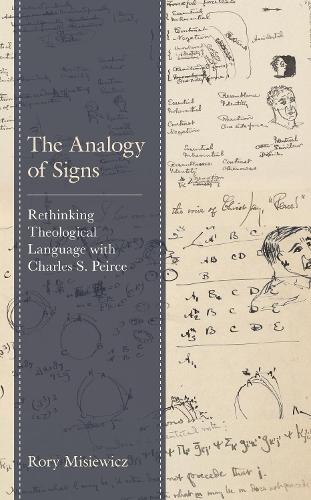
The Analogy of Signs: Rethinking Theological Language with Charles S. Peirce
(Hardback)
Publishing Details
The Analogy of Signs: Rethinking Theological Language with Charles S. Peirce
By (Author) Rory Misiewicz
Bloomsbury Publishing PLC
Lexington Books/Fortress Academic
12th February 2021
United States
Classifications
Professional and Scholarly
Non Fiction
Literary theory
Philosophy
230.014
Physical Properties
Hardback
312
Width 162mm, Height 229mm, Spine 25mm
662g
Description
The longstanding debate over how God-talk is intelligible gravitates around how we should understand the putative answer, by analogy. For some contemporary Christian theologians, analogy involves an ontological claim about creaturely and divine being (i.e., an analogy of being). For others, it involves a semantic or syntactical structure that legitimates the linguistic performances associated with analogy (i.e., a grammatical analogy). Still others appeal to faith in Gods self-disclosure in Jesus Christ (i.e., an analogy of faith).
Rory Misiewicz argues that all of these approaches fall flat in their explanatory efforts. He draws upon the work of American philosopher Charles Sanders Peirce to rethink the relation between God and human beings. He argues that Christian theologians may view that relation as being established by an analogy of signs: both God and human beings are univocally involved in semiosis, or sign-process, and the confirmation of Gods semiotic identity is found in the revelation of God in the person of Jesus, the incarnate Son of God. Therefore, ordinary analogical language is intelligible, for divine signs are commensurate with human signs.
Reviews
Rory Misiewicz has produced a fine comparison of Thomas Aquinass analogy of faith and Charles S. Peirces analogy of signs. This is first-rate Peirce scholarship and adds to our growing knowledge of Peirces later work. It takes a worthy place among scholarship sponsored by Shorts Peirces Theory of Signs. It is especially good in explicating Peirces strange, conservative, view of God.
-- Robert Cummings Neville, Boston University, emeritusAuthor Bio
Rory Misiewicz (PhD, Princeton Theological Seminary) teaches humane letters at Philadelphia Classical School (PA).
